Discover Breakthrough tPBM Research
Explore cutting-edge studies on transcranial photobiomodulation therapy with interactive visualizations and comprehensive analyses
Loading research data…

Down Syndrome: TransPhoM-DS Study
Ongoing clinical trial investigating tPBM effects on language, attention, memory, and neural oscillations in individuals with Down syndrome using EEG assessments.
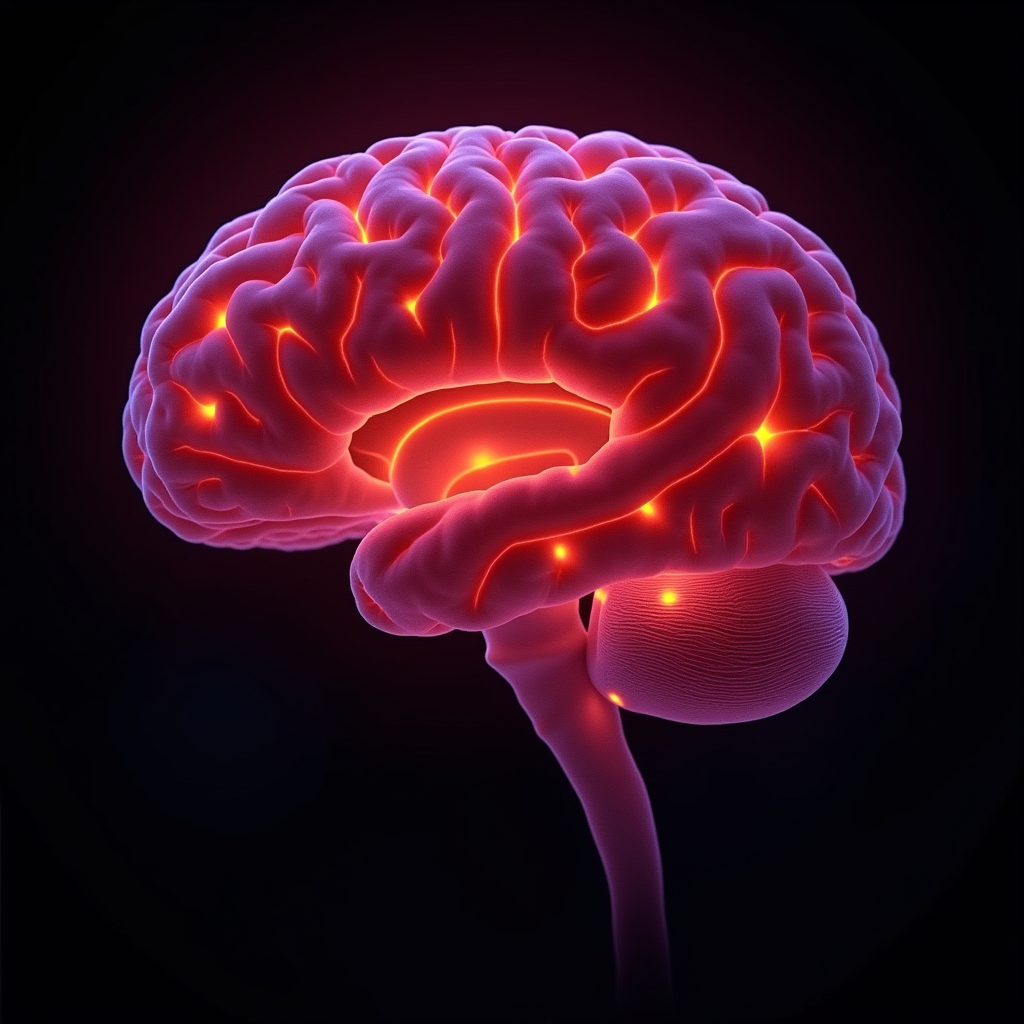
High-Functioning Autism in Adults
MGH study showing 50% response rate with significant improvements in social awareness, communication, and repetitive behaviors after 8 weeks of tPBM.
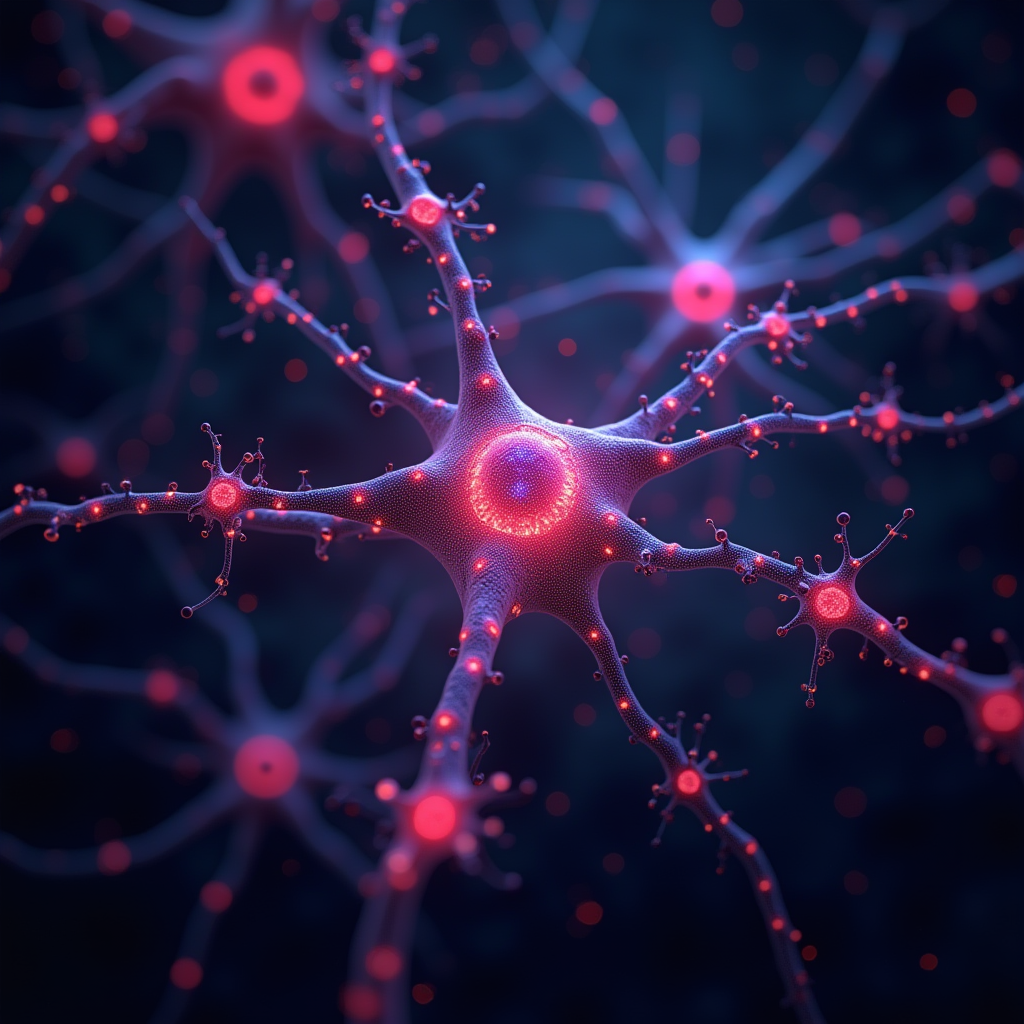
Autism in Children Ages 2-6
Randomized sham-controlled trial with 30 children showing significant improvements in CARS scores and EEG delta wave patterns after 8 weeks.
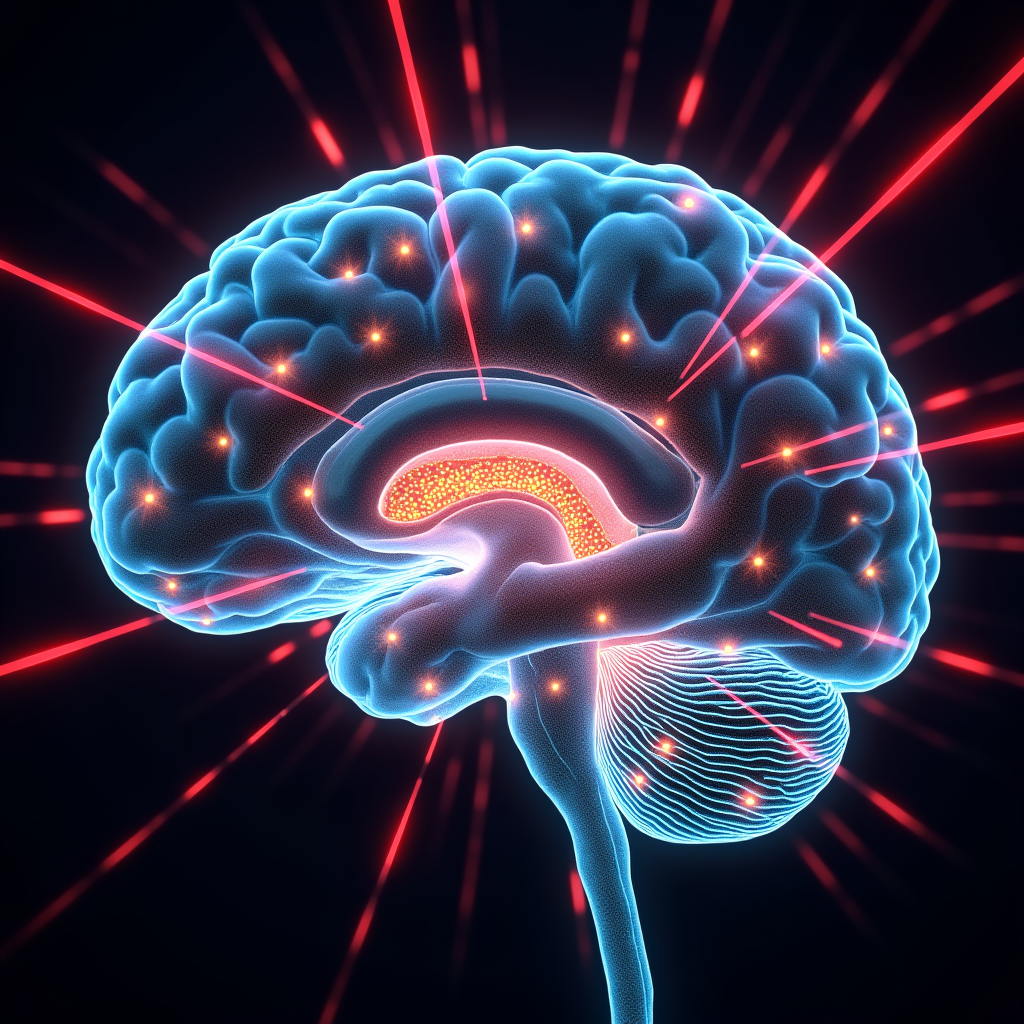
Major Depression: ELATED-2 Trial
Pilot RCT demonstrating significant reduction in HAM-D scores with NIR light therapy targeting dorsolateral prefrontal cortex.
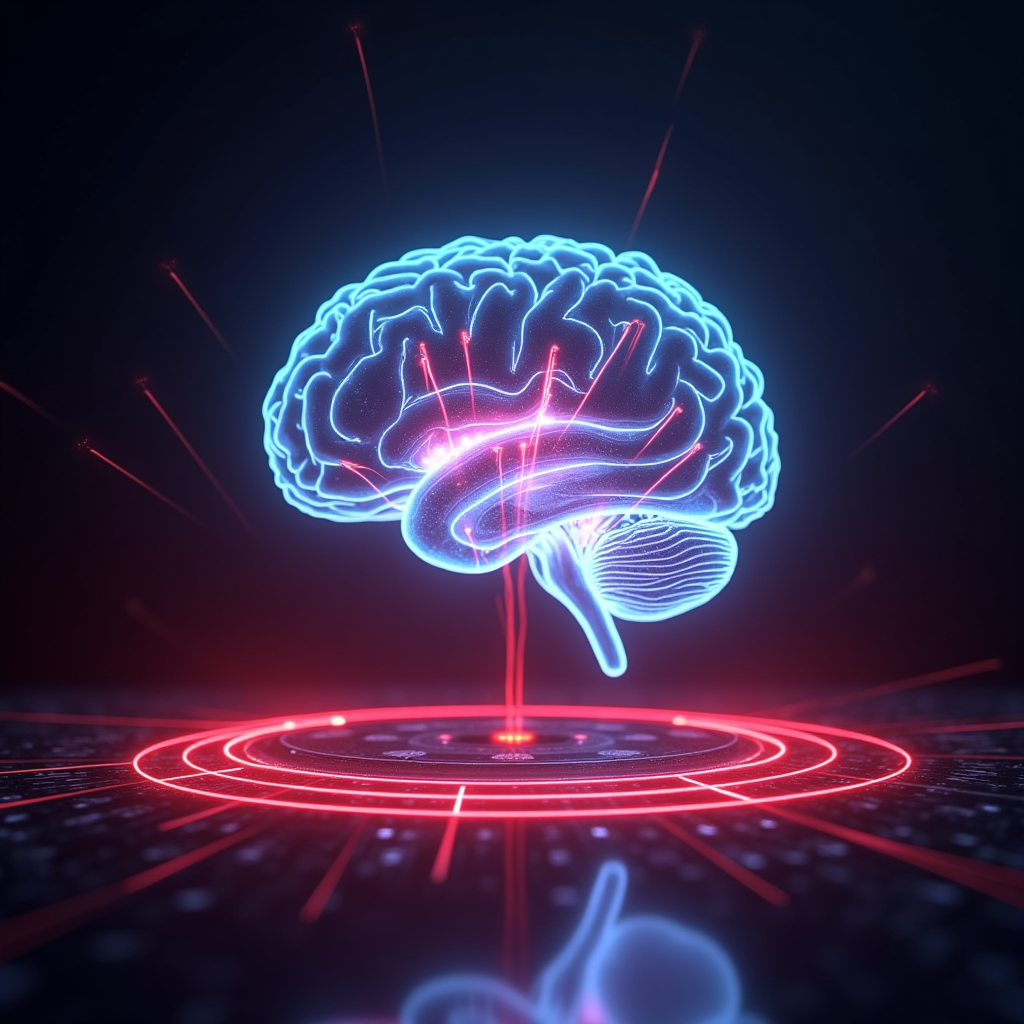
Depression Meta-Analysis 2024
Systematic review of 11 RCTs showing significant improvements in depression symptoms and sleep quality with photobiomodulation therapy.
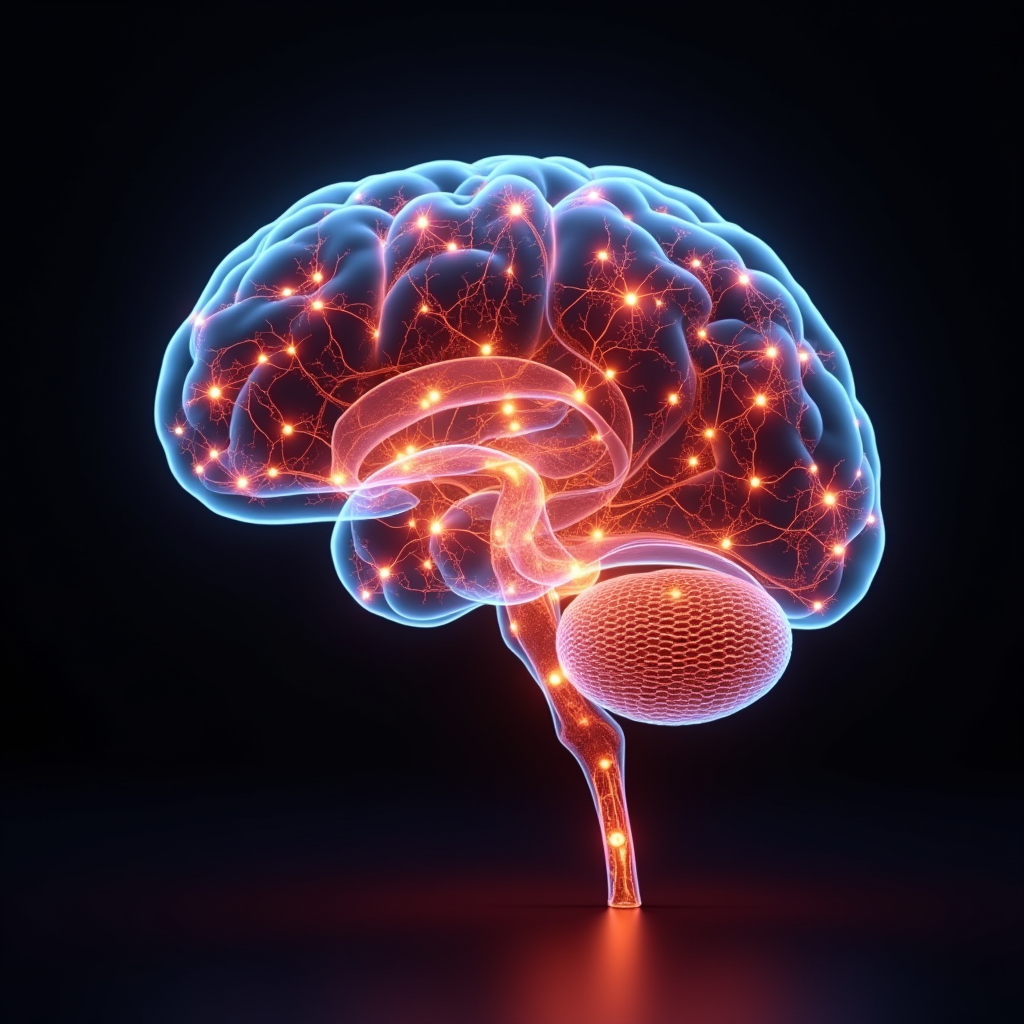
Anxiety, Depression & Addiction
Double-blind RCT with 70 patients showing sustained reductions in anxiety, depression, and opioid craving at 3-month follow-up.

Anxiety & Depression Mechanisms
Mouse model study showing optimal anti-anxiety effects at 8 J/cm² through increased serotonin and decreased nitric oxide levels in brain.
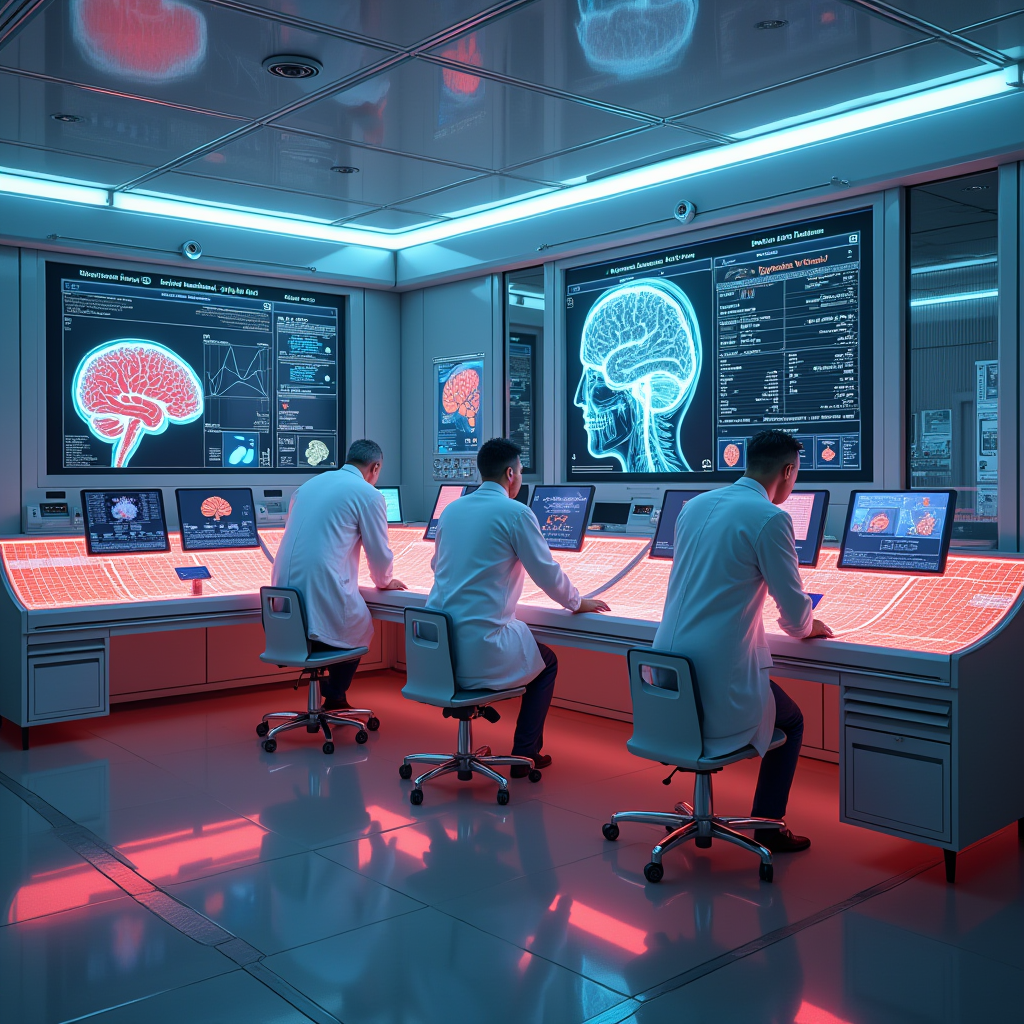
Mild Cognitive Impairment Study
Pilot RCT showing improved MMSE scores and enhanced brain metabolism with increased lactate/pyruvate levels indicating mitochondrial activation.

Traumatic Brain Injury & PTSD
Studies in chronic TBI patients showing improvements in cognition, PTSD symptoms, sleep quality, and increased cerebral blood flow.

TBI Cognitive Function Review
Systematic review showing tPBM improves attention, verbal fluency, and memory in chronic TBI patients through increased gray matter volume and CBF.

Sleep & Depression: Wearable Device
RCT with 48 patients using self-administered wearable tPBM device showing improvements in depression symptoms and sleep quality.

MS: Dorsoventral PBM Study
Groundbreaking mouse model study showing dorsoventral PBM safely reduces inflammation and sensorimotor deficits in MS model.

MS: IL-10 & Nitrites Study
RCT in relapsing-remitting MS patients showing PBM positively modulates IL-10 expression and improves anti-inflammatory response.

MS: Systematic Review 2024
Comprehensive review showing PBM improves motor, sensory, and cognitive functions in MS patients with no adverse effects reported.

Stroke: NEST-1 Trial
First human stroke trial with 120 patients showing significant improvements in NIHSS scores at 90 days with 808nm transcranial laser therapy.

Stroke: NEST-3 Phase 3
Large pivotal trial with 1000 patients testing NeuroThera laser system for acute ischemic stroke within 24 hours of onset.

Stroke: tPBM Potential 2024
Comprehensive review of tPBM for stroke showing enhanced mitochondrial function, neurogenesis, and reduced neuroinflammation.

Healthy Adults: Cognitive Enhancement
Meta-analysis showing tPBM improves memory, attention, and executive function in healthy individuals with task-related fNIRS evidence.

ADHD: Attention & Executive Function
Narrative review showing tPBM as promising intervention for neurodevelopmental disorders including ADHD, with potential therapeutic effects on attention and executive function.

Post-COVID Headache & Orofacial Pain
RCT demonstrating vascular photobiomodulation reduces tension-type headache and orofacial pain in post-COVID-19 patients persisting for more than 3 months.

Fibromyalgia Pain & Cognition
Triple-blinded RCT showing whole-body PBM reduces pain scores, improves quality of life, and decreases psychological factors in fibromyalgia patients.

Bipolar Disorder: Mitochondrial Effects
Study showing prefrontal PBM produces beneficial mitochondrial and oxygenation effects in older adults with bipolar disorder, improving metabolic function.

ME/CFS: Feasibility Study
Ongoing feasibility study assessing 670nm red light PBM to improve mitochondrial function, physical capacity and cognitive function in ME/CFS patients.

Neurological Applications of PBM
Comprehensive review of PBM devices and applications showing potential for treating various neurological conditions including neuropathic pain and cognitive dysfunction.

PBM in Cognitive Function Enhancement
Systematic review confirming tPBM improves cognitive function across various populations, with potential applications in post-surgical cognitive recovery.

PBM for Psychological Disorders
Systematic review showing PBM as promising tool for psychological disorders, with evidence for modulating cognitive processes and treating various conditions.

tPBM for TBI & Concussion
Systematic review showing tPBM improves cognitive function in TBI patients through enhanced cerebral blood flow and neural connectivity.

Gulf War Illness: Multi-Symptom
Controlled trial showing transcranial PBM improves cognitive function and quality of life in veterans with Gulf War Illness multi-symptom presentation.

Substance Use & Mood Disorders
Systematic review showing PBM therapy’s potential for mood disorders, with applications in addiction recovery through mood stabilization.

Autism: tPBM Effects on Executive Function
Study showing tPBM improves executive function deficits in adults with high-functioning autism, including inhibition and emotional control.

Cognitive Enhancement in Older Adults
RCT showing tPBM increases cognition and serum BDNF levels in adults over 50 years, potentially preventing cognitive decline and dementia.

Post-COVID Cognitive Symptoms
Review highlighting PBM’s potential role in treating post-COVID conditions including brain fog, through improved cellular energy and immune function.

Depression & Anxiety: Meta-Analysis
Systematic review and meta-analysis of 11 RCTs confirming PBM as effective treatment for depression, including potential applications in adolescents.

tPBM for Cognitive Enhancement
Systematic review showing tPBM improves cognitive function in various populations, with potential applications for chemotherapy-induced cognitive impairment.
Published Studies
400+ Clinical Trials
Participants
20,000+ Worldwide
Research Centers
100+ Institutions
